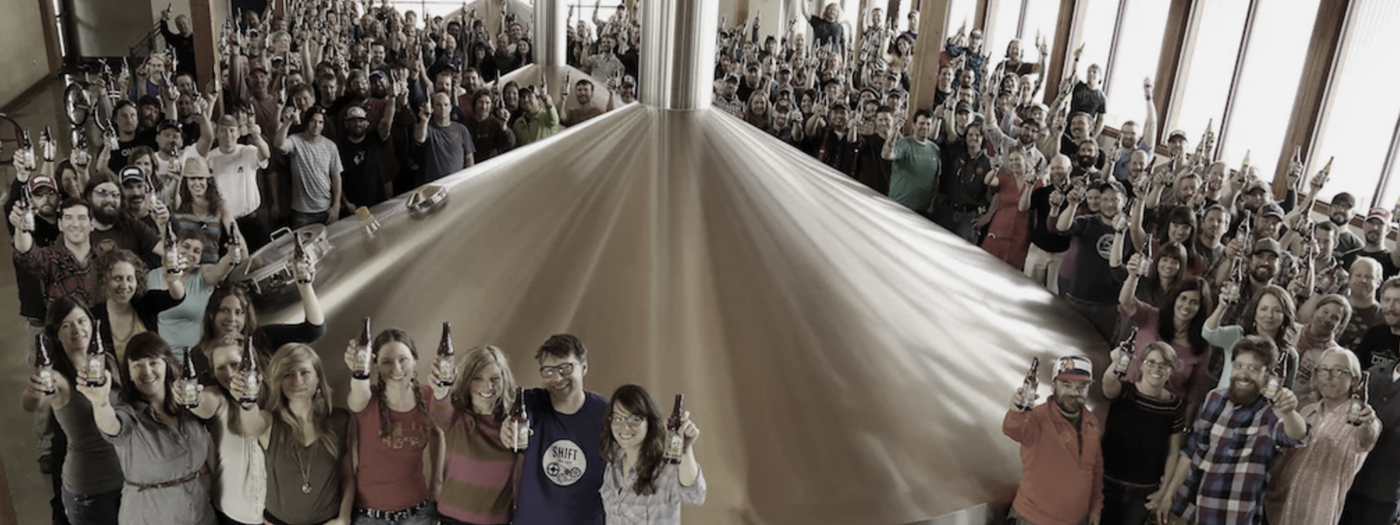The proposed sale of New Belgium Brewing, currently owned by an Employee Stock Ownership Plan (ESOP), to a multinational corporation is the latest episode in the “labor-owning capital” debate that has taken place over the past century. As such, it offers an opportunity to consider the unique aspects of ESOPs and worker co-operatives and what these models offer to a vision for a more inclusive, resilient, and democratic economy.
In ESOPs, capital remains the driving force with increased access to stock ownership for employees and growth in share value as the primary goal. The enterprise itself is a commodity with stock valued according to the market — what the business could be sold for at a given moment. In this context, the sale of New Belgium, or any ESOP, is the logical outcome of a model designed to distribute capital gains among workers. There is a built-in incentive for employee-investors to sell when share value is high or when access to financial capital is needed. Because votes are based on stock ownership, as in other investor-owned firms, senior employee-investors with the most to gain from a sale have the most say in such a decision.
Co-operative firms, by contrast, are designed for the ongoing use of the enterprise by worker-members (usus-fructus property rights), rather than their right to sell assets. Capital is treated as a means to an end rather than an end in itself, with surplus (or profit) returned to members on the basis of their labor. Asset locks, indivisible reserves, and other mechanisms incentivize operation of the co-op as a multigenerational asset. Governed on the basis of one member, one vote, worker co-ops focus on employee empowerment, job retention, and control over one’s work life.
We therefore need a new vocabulary or, maybe, just a proper use of existing terms. While both co-ops and ESOPs are often included under the umbrella of “employee ownership,” this term has been largely appropriated by conventional economic thought that places the right to dispose of property at the center of ownership rights. This obscures alternatives such as co-operatives that are based on the right of members to use the enterprise for long-term employment, social purpose, and economic development. Like other co-operatives, worker co-ops are “owned” by user-members—in this case, the people who actively work within the firm—but not in the conventional sense of the individual’s right to buy and sell property. Rather, collective ownership and decision-making by workers is more akin to citizenship in an economic democracy.
While both co-ops and ESOPs are often included under the umbrella of “employee ownership,” this term has been largely appropriated by conventional economic thought that places the right to dispose of property at the center of ownership rights.
If employee-investors approve the transaction, the sale of New Belgium would be an indication that the investor interest of the current generation of employees overrode long-term employment and social concerns. In this context, the sale would be a success in that it represented an opportunity for substantial capital gains. However, if the goal of employee ownership is to root jobs and infrastructure in the community over time, the co-operative model may be more appropriate.
Erbin Crowell is executive director of Neighboring Food Co-op Association and chair of National Cooperative Business Association, CLUSA International (NCBA CLUSA). Sonja Novkovic is a professor at the International Center for Co-operative Management, Saint Mary’s University, and a member of the Council of Cooperative Economists at NCBA CLUSA.




















